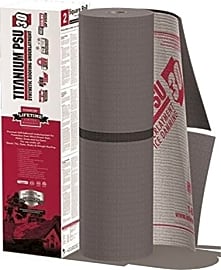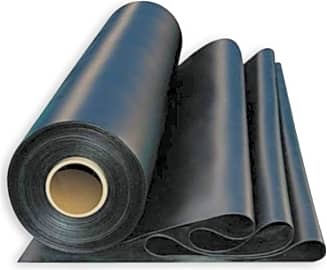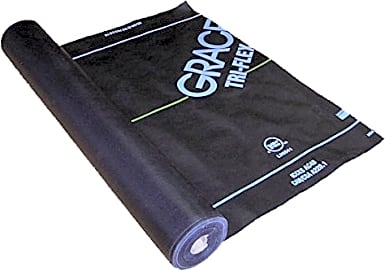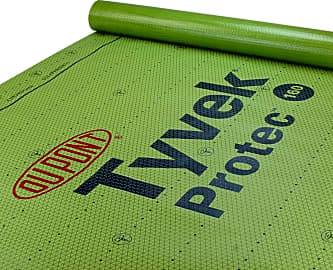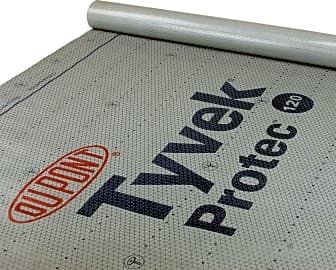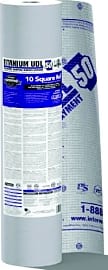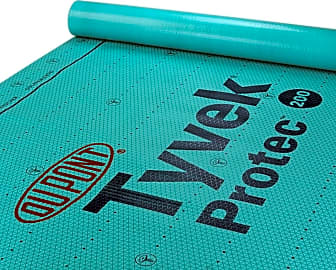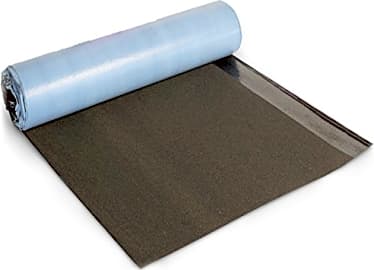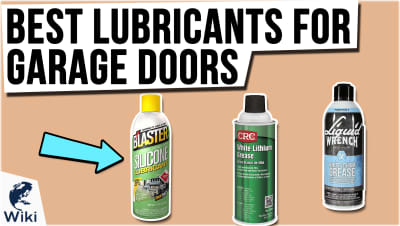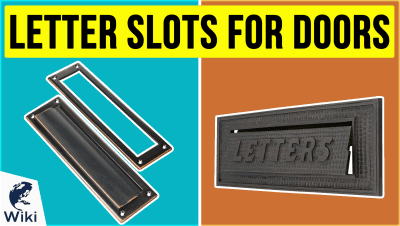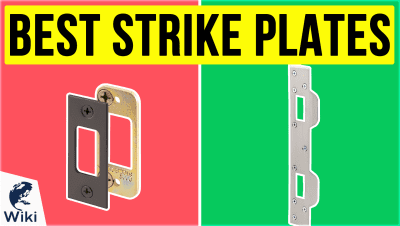The 9 Best Synthetic Underlayments For Roofs

This wiki has been updated 25 times since it was first published in November of 2018. Synthetic roofing is one of the great advancements in home building, and can last for decades when properly installed. The right materials are essential to ensure that happens. A good underlayment resists moisture, holds up over time, and provides a high-friction surface on which to work while installing the roof surface of your choice. Here are some of the most affordable and effective. When users buy our independently chosen editorial choices, we may earn commissions to help fund the Wiki.
Editor's Notes
March 02, 2021:
There aren't a ton of new underlayments available, but we did decide to remove the InterWrap UDL30 because it's not much less expensive than the superior InterWrap UDL50. Instead, we added Firestone RubberGard, a synthetic rubber option that is about as durable and long-lasting as they come. Similarly, InterWrap Titanium PSU30 is a combination of high-tech, seld-adhering options and dependable, rubberized choices. Their long lifespans comes at a significant cost, however, and large projects will quickly get expensive. InterWrap RhinoRoof is far less costly than both, and for the average homeowner, will do just about as well, which is why it's one of the most popular options on the market.
February 11, 2019:
Synthetic underlayments have been exploding in popularity over the last decade. They're particularly useful wherever the weather is routinely harsh, because they're generally less permeable than traditional, asphalt-impregnated felt. Keep in mind, though, that this also requires plenty of ventilation underneath the structure, to make up for their relative inability to breathe. InterWrap is undoubtedly one of the most relied-upon brands, and their 7-mil RhinoRoof is very well known. It strikes a good balance between vapor-proofing and permeability, and it's very lightweight, as well as pretty inexpensive. Their PSU30 is considerably thicker, and uses an adhesive coating to ensure ease of installation. Moving up their line, UDL30 and UDL50 are progressively more durable, though not necessary for many homes. Tyvek is a name ubiquitous to home-building, and their synthetic roofing products don't disappoint. From 120, through 160, to the 200 varieties, one of their products is almost certain to meet your needs. Grace Tri-Flex is another popular choice, and it's both resilient, as well as easy to install. Atlas's WeatherMaster is specifically designed for water- and ice-damming, and isn't commonly used across the majority of a job, because it's wildly expensive. Whichever you choose, be certain that it's installed by a practiced craftsman, as the quality of the job is every bit as important as the materials used.
Special Honors
SharkSkin No matter what kind of roofing you're installing, there's a variety of SharkSkin that can help, whether it's asphalt, metal, tile, slate or more. It also works great under solar panels and their wall barriers are every bit as good as their underlayments. sharkskinroof.com
Epilay Building Products This California-based company specializes in advanced woven fabrics, and their premium roof underlayments are no exception. They offer four varieties, ranging from a 6.5-mil version with a 10-year limited warranty, and a 17-mil option that's supposedly good for 40. Not only is it better performing than felt, it's also considerably lighter and more durable. epilay.com


